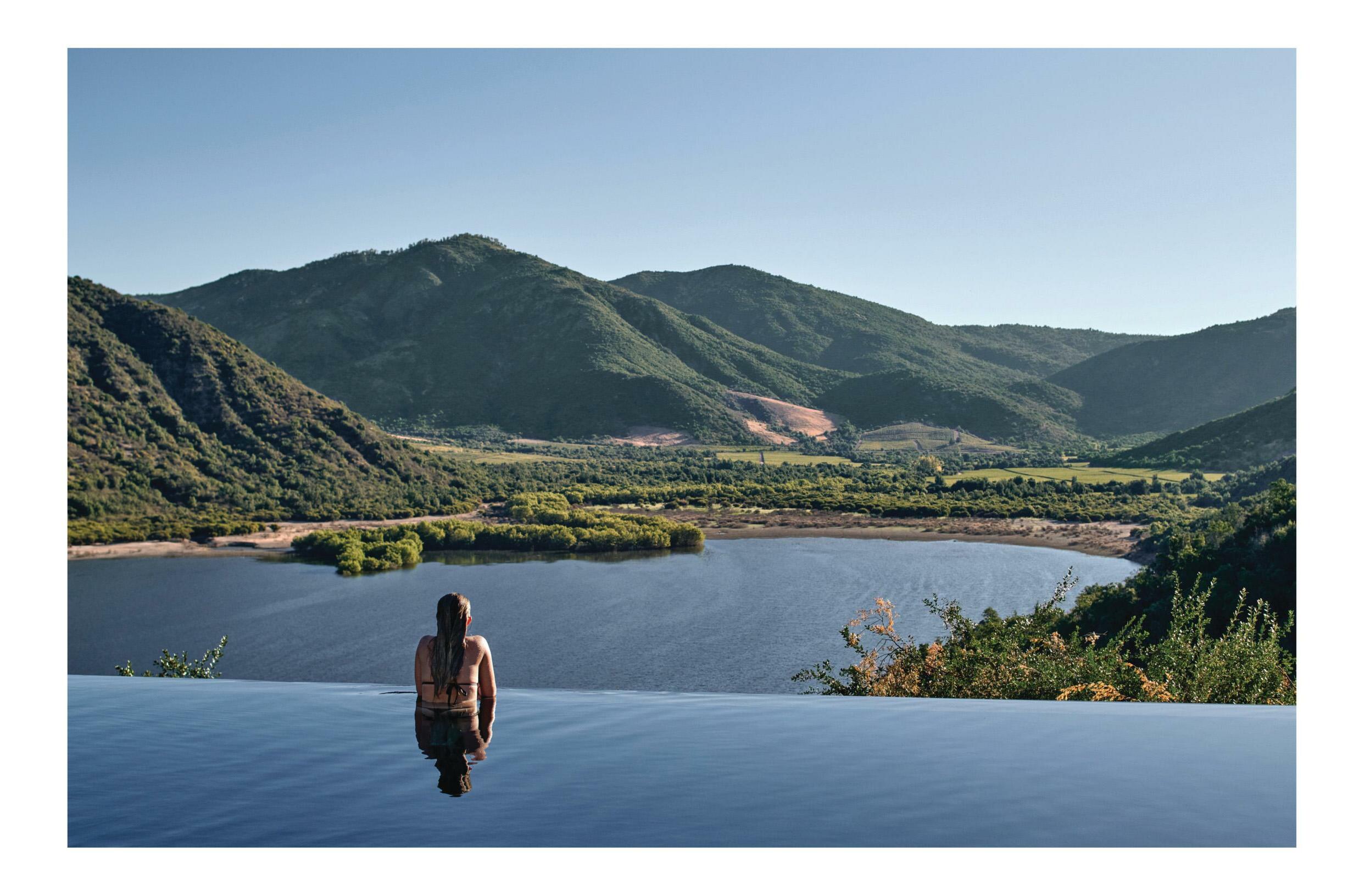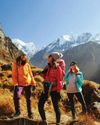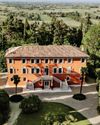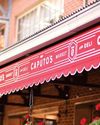DRINKING IT ALL IN

THE Mapuche, Chile's largest Indigenous group, have a word that defies concise translation. In English, peumayen is often rendered "place of dreams," but that underplays the importance of dreaming to the Mapuche. To them, a dream can be a wish, a hope, or a prophecy. It can be an idyll visited in slumber, or a fantasyland that stirs the imagination. Sometimes, you don't even know a peumayen until you're in it.
As I stepped into the forecourt of the Vik winery, in a fertile valley that the Mapuche call a "golden place," I found myself in a sweeping, water-filled plaza. Boulders and rocks gathered by the Chilean sculptor Marcela Correa and her architect husband, Smiljan Radić, had been scattered across the shallow pool. The installation, water mirror, serves as both a subtle nod to terroir and a grand welcome. It's also a feat of sustainable engineering: as water flows across the plaza, it cools the wine cellar beneath.
The winery building, designed by Radić, is no less remarkable. It looks as if a glowing spaceship had landed on the fertile soil. A translucent-white canopy bathes the interior in natural light. Glass façades offer clear views through the whole structure, to the vineyards and Andes mountains beyond. The winery complex telegraphs modernity, while the surrounding foothills testify to the passage of time.
On this ancient land that has fed countless generations, and which now gives rise to modern architecture and new wine, I glimpsed the Chile I was seeking: peumayen.
CHILE IS AMONG the richest countries in South America, as measured by per-capita GDP. But this 2,672-mile-long sliver of Pacific coast is wealthy in other ways. In his inaugural address in 2022, Chile's youngest-ever president, Gabriel Boric, then 36, nodded to Chile's history-not just its colonial past but also its gaping inequality-and voiced hope for "a dignified future," while also lauding its magical landscapes and agricultural bounty.
Denne historien er fra September 2024-utgaven av Travel+Leisure US.
Start din 7-dagers gratis prøveperiode på Magzter GOLD for å få tilgang til tusenvis av utvalgte premiumhistorier og 9500+ magasiner og aviser.
Allerede abonnent ? Logg på
Denne historien er fra September 2024-utgaven av Travel+Leisure US.
Start din 7-dagers gratis prøveperiode på Magzter GOLD for å få tilgang til tusenvis av utvalgte premiumhistorier og 9500+ magasiner og aviser.
Allerede abonnent? Logg på

Keys to the Kingdom
From premium dining to VIP tours, Walt Disney World Resort is upping its game—and gaining a new generation of superfans.

INTELLIGENT TRAVELER
If last year’s solar eclipse and auroras turned you into an astro-tourist, you're not the only one exploring after dark.

Best Foot Forward
A cancer diagnosis motivated T+L’s Nina Ruggiero Curtis to run her first marathon—on another continent.

The New Girls' Trip
Women are putting a new spin on the idea of “solo” travel by signing on for small-group adventures.

Fiesta Forever
The Spanish port city of Cádiz seduces with grandeur—and grit.

Italian Revival
Sparkling Lambrusco was once ubiquitous. Simon Willis meets the sophisticated vintners behind its comeback.

Better, Together
Women who have lost spouses are finding community through travel.

Tee Up Your Next Trip
From Long Island to Hawaii, top golf events are as much about the destination as the game itself.

MUSE of the MEDITERRANEAN
Why is the blue-chip art world converging on a tiny Greek island? Tony Perrottet explores Hydra, where chill vibes meet cutting-edge creativity.

Shaking It Up
Salt Lake City has been attracting a younger population—and with it, a wave of change.
